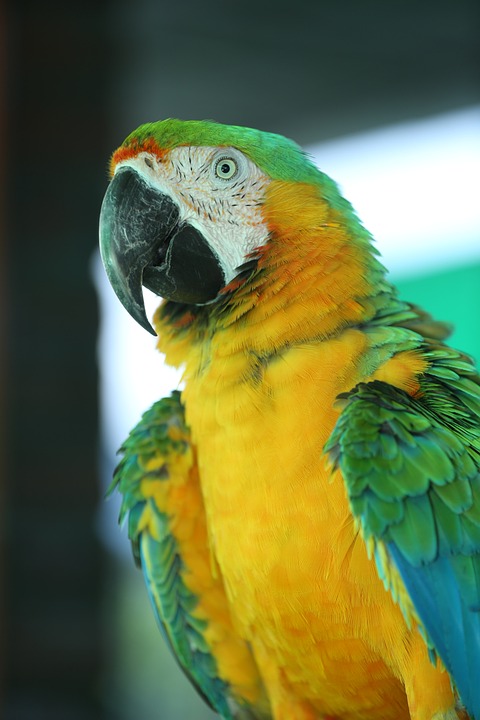Unlocking the Mind: How Parrots Respond to Problem-Solving Games
Introduction:
Parrots are known for their intelligence and ability to mimic human speech. However, their cognitive abilities go far beyond mere mimicry. In this article, we will explore the fascinating world of parrot behavior, particularly their response to problem-solving games. By understanding how parrots react to these games, we can gain insights into their cognitive processes and enhance their overall well-being. Additionally, we will address some frequently asked questions regarding parrot behavior and problem-solving.
I. The Cognitive Abilities of Parrots
Parrots possess remarkable cognitive abilities that have astounded researchers and bird enthusiasts alike. This section will discuss some key cognitive skills demonstrated by parrots.
1. Reasoning and Problem-Solving:
a. Understanding cause and effect: Parrots can often decipher the relationship between their actions and the outcomes they produce.
b. Tool use: Certain parrot species demonstrate the ability to use tools to solve problems, such as retrieving food from hard-to-reach places.
c. Spatial reasoning: Parrots can navigate complex environments and accurately assess distances and obstacles.
2. Memory and Learning:
a. Long-term memory: Parrots have the ability to remember events, actions, and people over extended periods.
b. Associative learning: Parrots can associate specific cues or words with corresponding actions or outcomes.
c. Imitation: Parrots are renowned for their ability to mimic sounds and actions, showcasing their exceptional observational learning skills.
II. Parrots and Problem-Solving Games
Problem-solving games provide an enriching and stimulating experience for parrots, allowing them to showcase their cognitive abilities. This section will delve into how parrots respond to various problem-solving games.
1. Puzzle Toys:
a. Manipulation challenges: Parrots enjoy solving puzzles that involve manipulating objects, such as unlocking compartments or finding hidden treats.
b. Foraging games: Interactive toys that require parrots to search for food rewards simulate their natural foraging instincts, providing both mental and physical stimulation.
2. Training and Trick Learning:
a. Shaping behavior: Parrots respond well to positive reinforcement training techniques, where they learn to perform specific actions or tricks in exchange for rewards.
b. Sequential learning: Parrots can learn complex sequences of actions, such as performing a series of tricks in a specific order.
3. Problem-Solving Tasks:
a. Object displacement: Parrots excel at tasks that involve moving or manipulating objects to access rewards, demonstrating their understanding of cause and effect.
b. Logical reasoning: Some parrots can solve puzzles that require logical thinking, such as choosing the correct path or sequence of actions to reach a desired outcome.
FAQs about Parrot Behavior and Problem-Solving
Q1: Are all parrot species equally adept at problem-solving?
A1: While individual parrots may vary in their problem-solving abilities, research suggests that most parrot species possess relatively high cognitive skills. However, certain species, such as African grey parrots, have been found to excel in problem-solving tasks.
Q2: Can problem-solving games help improve a parrot’s mental health?
A2: Absolutely! Problem-solving games provide mental stimulation, prevent boredom, and promote a parrot’s overall well-being. Engaging their cognitive abilities through games also helps reduce potential behavioral problems due to lack of mental stimulation.
Q3: How can I introduce problem-solving games to my parrot?
A3: Start with simple puzzles or toys that match your parrot’s skill level. Gradually increase the difficulty as your parrot becomes more proficient. Supervise your parrot during playtime to ensure their safety and offer rewards and praise when they successfully complete a task.
Q4: Are there any safety considerations when providing problem-solving games to parrots?
A4: Yes, it’s essential to choose toys made from bird-safe materials, free from small parts or toxic substances. Regularly inspect toys for signs of wear and remove any damaged or potentially dangerous items.
Conclusion:
Understanding parrot behavior and their response to problem-solving games allows us to appreciate their intelligence and offer them engaging mental challenges. By incorporating problem-solving activities into their daily routines, we can enhance their cognitive abilities, promote their well-being, and strengthen the bond between parrot and owner.









